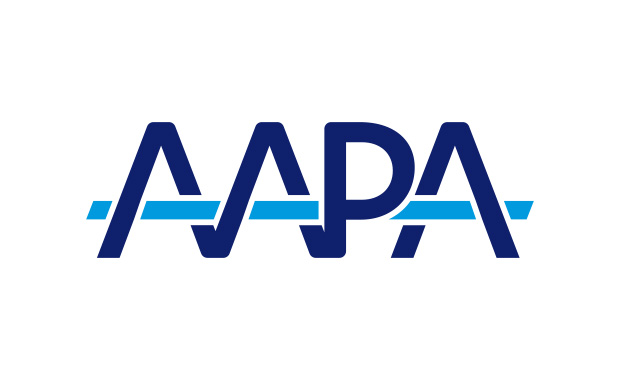The Importance of Communication in Your PA Career
Enhance Your PA Practice with Effective Communication Skills
October 9, 2018
By Jennifer Anne Hohman
Communication in professional life encompasses many aspects, from the quality of collegial relationships, to being heard and respected as a PA. Many PAs closely link job satisfaction with the quality of communication at work. Here, I’d like to suggest some ways of improving communication at work, with the goal of greater vitality, presence, and connection to colleagues and patients. Hopefully, you’ll feel empowered to speak freely and make the most of your career.
I’ve found valuable insights in the work of communications expert Patti Lind, author of “Communication at Work.” Her book offers tools and strategies for relating to challenging colleagues and improving the quality of professional relationships. Lind sees improving one’s communication skills as a lifelong process, with benefits spanning both personal and professional realms. Learning how to be more “skillful” in this area means cultivating your capacity for both clear and honest expression and engaged listening, particularly with anyone you’ve had trouble communicating with.
Ask for What You Want: Negotiation and Self-Advocacy
Asking for what you want at work is a cornerstone of Lind’s guidance for healthy communication at work (and in life). I can attest to the power of this guidance in the realm of contract negotiation. I’ve talked to many PAs over the years who wished, in retrospect, that they had fully communicated questions and concerns about an employment contract but decided to stay quiet and hope for the best.
I don’t recommend staying silent and agreeing to problematic language or contract elements that directly contradict face-to-face discussions about a job. It is better to seek clarity and state your needs and concerns, particularly at the outset of an employment relationship. You may well get what you want, and if you don’t, you’ll have clarified differing expectations about compensation, work/life balance, benefits and PA roles, leaving you free to consider other positions that might be a better fit.
To better identify what you want and communicate it effectively, AAPA’s Salary Report is an excellent resource with information on all aspects of PA compensation, from hourly pay and annual salaries to key benefit package elements. The AAPA Salary Report is free to student, fellow, and retired members: an amazing member benefit.
Difficult Discussions: Advice on Challenging Relationships at Work
When communication at work is an issue, a key question to ask is whether you are in a toxic environment driven by hostile personalities. If you are — get out! These situations do not, as a rule, improve with time. More often though, communication challenges occur in imperfect but improvable situations, with decent, well-meaning (and in the medical realm, busy and stressed) colleagues. When communication breaks down, it is natural to try to avoid or work around the person or issue, which is problematic — if not impossible — for PAs on clinical teams, and leaves the issue to fester unresolved.
As Lind diagnoses the problem: “At the root of this dilemma is that many times the right choices are unfamiliar and uncomfortable in the moment … the easy road gets hard, and the hard easy.” She knows that “… overcoming your discomfort, kindly speaking your truth, listening through your fears and never giving up on problem solving together is the harder path but it creates relationships that are strong and able to weather the challenges ahead.”
If you are having communication problems with a collaborating physician or other colleague, request some time to meet and set a positive agenda: You’d like to improve teamwork and the ability to support one another’s best practice and wellbeing. Find opportunities to acknowledge successes: Express appreciation for a recent instance of collegial support or teamwork.
Next, describe examples of the team communication issue from your perspective. Be willing to listen calmly to their side (doing so might require a good deal of preparation, especially if issues have been building up for a while). Ask: How can we use this discussion to become a better team? What would you like to see change? What will each agree to do differently because of this discussion?
As Lind points out, a question to be mindful of in all professional relationships is, “What are you building toward?” Team practice is a delicate balance, and the healthiest version of that balance combines self-advocacy and care for others. With PAs’ uniquely relational approach to medicine, my hope is that by advocating for yourselves to create healthy careers, in which communication and mutual respect are foundational values, you can make medicine a better place for everyone.
Communication and Community
Feeling heard at work is a measure of professional wellbeing and correlates with job satisfaction. A sense of professional community helps inspire this wellbeing: It is empowering to connect with other PAs and to know you are part of a great profession and are participating in its growth. Joining online or in-person PA communities is an excellent way to develop your views and your willingness to communicate as a PA and on behalf of PAs, and I highly recommend it. If you’re looking for an online community, check out AAPA’s members-only Huddle, where PAs like you share stories, experiences, and advice. Learning from your peers is one of the best ways to build confidence and to navigate the complexities of communication and career.
Jennifer Anne Hohman is founder of PA Career Coach, a service to help PAs create healthy careers.
Thank you for reading AAPA’s News Central
You have 2 articles left this month. Create a free account to read more stories, or become a member for more access to exclusive benefits! Already have an account? Log in.



